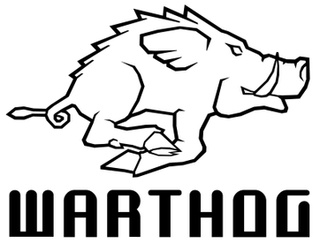
A handheld TV game or plug and play game is an integrated home video game console and game controller, usually battery powered, which connects directly to a television. The game software is built directly into the unit, which is typically designed to look like a toy or classic game console controller with the addition of a composite video cable to connect the unit. These systems usually contain either a collection of classic games or original games based on licensed properties. Because the game software is integrated into the game unit and almost never designed to be changed by the user, these game systems are typically marketed as electronic toys or collectibles rather than game consoles.

Miniature golf is an offshoot of the sport of golf focusing solely on the putting aspect of its parent game. The aim of the game is to score the lowest number of points. It is played on courses consisting of a series of holes similar to those of its parent, but the courses are characterized by their short length.

Warthog Games Limited, or Warthog plc, was a British video game developer, located in Cheadle Hulme, Stockport, with studios in Sweden and the United States.

In miniature wargaming, players enact simulated battles using scale models called miniature models, which can be anywhere from 2 to 54 mm in height, to represent warriors, vehicles, artillery, buildings, and terrain. These models are colloquially referred to as miniatures or minis.

Child's Play is a charitable organization that donates toys and games to children's hospitals worldwide. It was founded in 2003 by Mike Krahulik and Jerry Holkins, authors of the popular video games-related webcomic Penny Arcade. The charity is seen as a way to refute mainstream media's perception of gamers as violent and antisocial. As of 2022, Child's Play had processed over $55,147,529.24 in donations since its inception.

The Gizmondo is a handheld gaming console developed by Gizmondo Europe. Its development was led by Swedish entrepreneur Carl Freer, who served as chairman of its parent company, Tiger Telematics. The device was originally launched on 19 March 2005 in Britain; although releases in other European territories were planned for 19 May, this never occurred, and it instead only received a limited release in Sweden. It also had a limited release in the United States in October 2005. The Gizmondo was produced and marketed until 2006 when Gizmondo Europe was liquidated.
"Dead Putting Society" is the sixth episode of the second season of the American animated television series The Simpsons. It originally aired on Fox in the United States on November 15, 1990. In the episode, Homer and Ned quarrel and bet which of their sons, Bart or Todd, will win a miniature golf tournament. Homer is confident Bart will win and bets that the father of the boy who does not win must mow the other's lawn in his wife's Sunday dress.

Middle Earth Strategy Battle Game, previously marketed as The Lord of the Rings Strategy Battle Game, The Hobbit: An Unexpected Journey Strategy Battle Game, The Hobbit: The Desolation of Smaug Strategy Battle Game and The Hobbit: The Battle of Five Armies Strategy Battle Game, is a tabletop miniature wargame produced by Games Workshop. It is based on The Lord of the Rings and The Hobbit film trilogies directed by Peter Jackson, and the books that inspired them, written by J. R. R. Tolkien.

Everybody's Golf 4, released as Hot Shots Golf Fore! in North America, Everybody's Golf in Europe and Everybody's Golf 2004 in Australia, is a golf video game developed by Clap Hanz and published by Sony Computer Entertainment for the PlayStation 2. It is the successor to Everybody's Golf 3 / Hot Shots Golf 3 (2001) and was succeeded by Everybody's Golf 5 / Hot Shots Golf: Out of Bounds (2007).
Everybody's Golf, known in Japan as Minna no Golf and formerly known as Hot Shots Golf in North America, is a series of golf video games created by Camelot Software Planning and published by Sony Interactive Entertainment for the PlayStation series of video game consoles. The series is a humorous take on the game of golf that includes cartoon-like and anime-like characters and modes such as miniature golf paired with a realistic engine and precise ball physics.

Itchy & Scratchy in Miniature Golf Madness is a side-scrolling action platform game and miniature golf game released on the Game Boy in 1994, featuring the cat and mouse pair Itchy & Scratchy from the American animated television series The Simpsons. Developed by Beam Software, it was the first game to feature these characters. In the game, the player controls Scratchy as he plays through a miniature golf course of nine holes while at the same time avoiding Itchy's attacks. It received mixed reviews from critics.

Tiger Telematics, or Tiger, was a Swedish electronics company, best known for the failed Gizmondo handheld game console.

Richard Burns Rally is a sim racing game, published by SCi and developed by Warthog with advice of WRC champion Richard Burns (1971–2005). It was released in 2004 for PlayStation 2 and Xbox in July, for Microsoft Windows in September, and in July 2005 for Gizmondo.
Gator Golf is a children's miniature golfing game. It was released in 1994 by the American game company Milton Bradley. In the game, children take turns putting into the mouth of a motorized plastic alligator figure, which then flings the ball off its tail and spins around, creating a new challenge for the next player. Gator Golf's commercial tag line was "Gator Golf - what could be greater than playing a game of golf with a gator?" It was released again in 2008, then in 2009 under the "Elefun and Friends" banner. It was then re-released in 2019 by Goliath Games.
Micro Machines is a series of video games featuring toy cars, developed by Codemasters and published on multiple platforms. The series is based on the Micro Machines toy line of miniature vehicles.

Sticky Balls is a 2005 puzzle video game developed by Gizmondo Studios in Manchester and released on the Gizmondo handheld system. The game was originally designed by Ste and John Pickford and was developed for various platforms, but at the end only the Gizmondo version materialized, and the Pickford brothers had no involvement in this version. Sticky Balls was ported to iOS in 2014.

Funspot is an arcade which features one of the largest collections of early-1970s to late-2000s games in the world. It is located in the village of Weirs Beach in Laconia, New Hampshire, United States. Founded in 1952 by Bob Lawton, Funspot includes over 600 video games, pinball machines, and ticket redemption machines; an indoor miniature golf course; 20-lane ten-pin and candlepin bowling; cash bingo; a restaurant; a tavern; an ice cream stand; kiddie rides; and several other attractions on its grounds.
Fathammer was a video game publisher and developer based in Finland. They have developed 3 D game SDK, X-Forge, which was provided to Nokia N-gage cell phones, the Tapwave Zodiac, and also the Gizmondo. Fathammer's publishing business was acquired by Telcogames in June 2006, and X-Forge game development environment developed by Fathammer was sold to Acrodea in Japan. Fathammer's largest owners were the investment companies 3i and Nexit Ventures. The Finnish Independence Fund Sitra also invested more than EUR 1 million in the company, which had offices in Helsinki and Seoul, Korea.

Hockey Rage 2005 is a hockey game for the Nokia N-Gage and Gizmondo handheld game console. The game features Bluetooth two player option.














